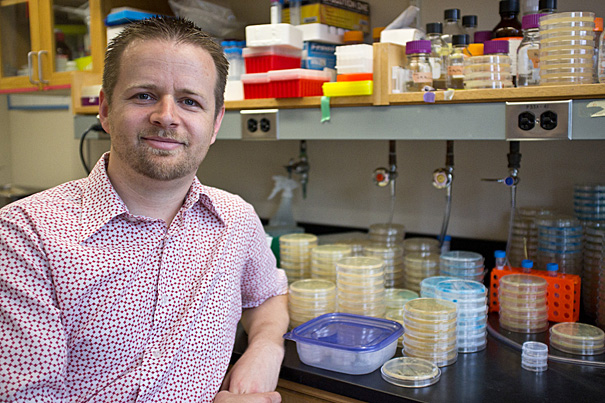Health
-
Lin Test
text with link. This is a quiz. Some text Name Name Quo modo autem philosophus loquitur? Tecum optime, deinde etiam cum mediocri amico. Invidiosum nomen est, infame, suspectum. Name Name…
-

Gender-affirming care is rare, study says
Fewer than 1 in 1,000 transgender youth receive hormones or puberty blockers

-

Nature offers novel approach to oral wound care
Slug’s sticky mucus inspiration behind adhesive hydrogel that can seal wounds in wet environment

-

Time for a rethink of colonoscopy guidelines?
Change informed by new findings would help specialists focus on those most at risk, researcher says

-

Should pharmacists be moral gatekeepers?
‘The problem is not opioids,’ says author of ‘Policing Patients’ — it’s overdose, pain
-

The deadly habit we can’t quite kick
Actions by tobacco companies worry researcher even amid ‘dramatic decrease’ in smoking among young Americans

-
Risky eating
A new study by Harvard School of Public Health researchers finds a strong association between the consumption of red meat — particularly when the meat is processed — and an increased risk of type 2 diabetes.

-
Sleep, oxygen, and dementia
Harvard research finds that sleep-disordered breathing is associated with a higher risk of cognitive impairment in older women.

-
Strength in numbers
Harvard researchers have created an analogue of what they think the first multicellular cooperation might have looked like, showing that yeast cells — in an environment that requires them to work for their food — grow and reproduce better in multicellular clumps than singly.
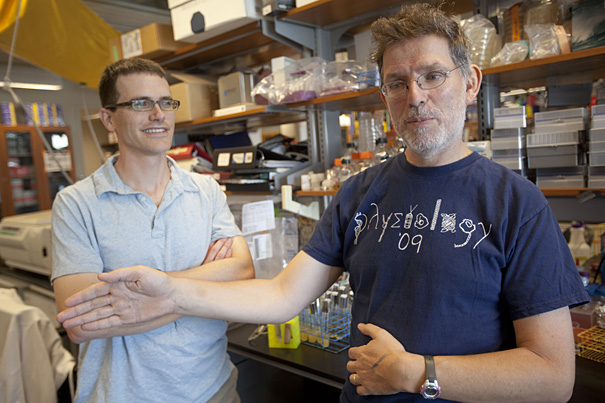
-
Grant backs study of cancer-obesity link
The Harvard School of Public Health has been awarded a five-year, $10 million grant from the National Cancer Institute for a new research center to study the relationship between obesity and cancer.
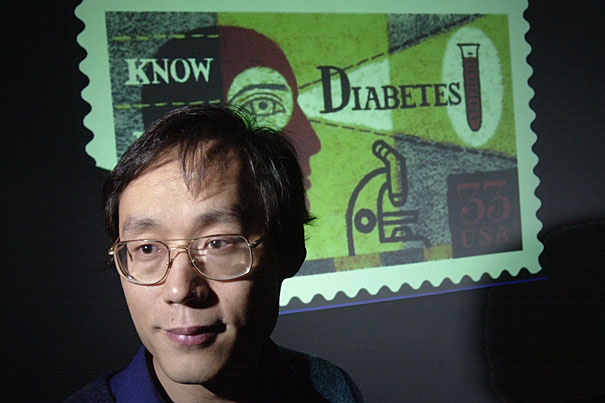
-
HSPH receives $14.1M grant
Harvard School of Public Health (HSPH) has been awarded a $14.1 million, four-year grant from the Bill & Melinda Gates Foundation to test the effectiveness of an innovative checklist-based childbirth safety program in reducing deaths and improving outcomes of mothers and infants in 120 hospitals in India.
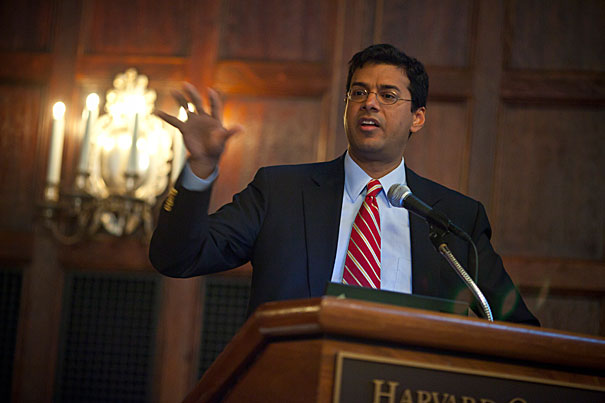
-
Hard fight ahead
Experts participating in an HSPH event expressed hope for rapid progress against Alzheimer’s disease even as they acknowledged that there’s little medical science can do today to help patients.
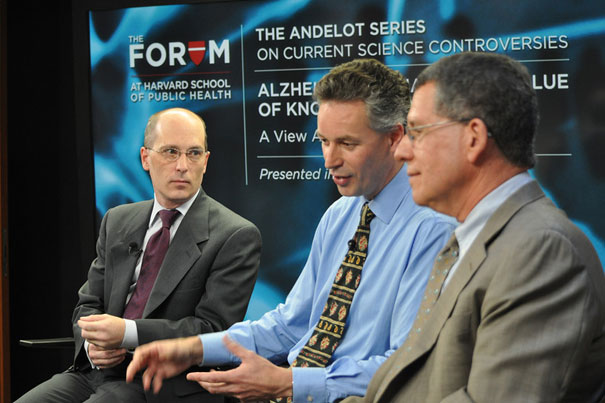
-
New approach to traumatic brain injuries
Bioengineers at Harvard have, for the first time, explained how the blast of an exploding bomb can translate into subtly disastrous injuries in the nerve cells and blood vessels of the brain.

-
New territory
A consortium led by scientists at the University of Oxford and Harvard Medical School has constructed the world’s most detailed genetic map, built from data from 30,000 African-Americans. The researchers assert that this is the most accurate and highest resolution genetic map yet.
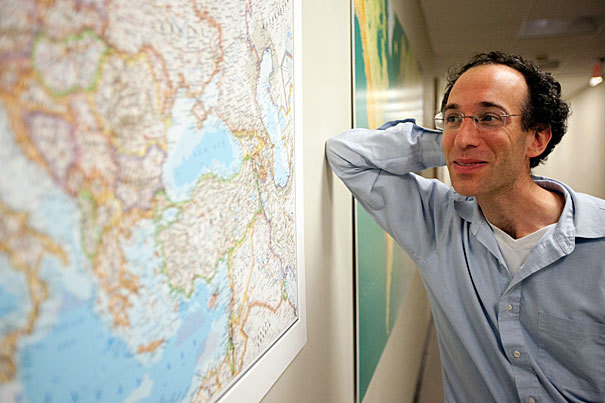
-
Predicting cancer’s spread
Harvard researchers at Dana-Farber Cancer Institute (DFCI) have identified a number of cancer genes that endow melanoma tumors with the ability to metastasize, making it possible to predict whether the tumors are likely to spread.
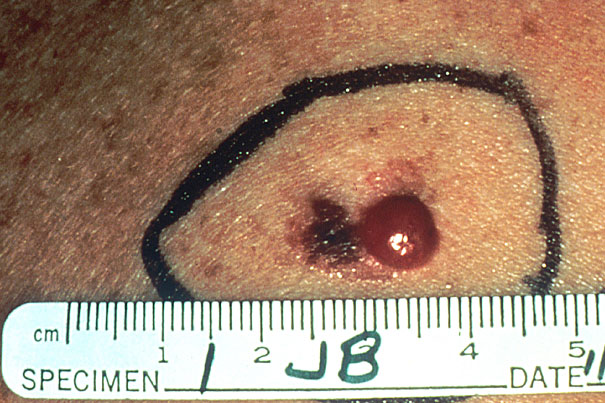
-
Editing the genome
Treating the chromosome as both an editable and an evolvable template, researchers have demonstrated methods to rewrite a cell’s genome through powerful new tools for biotechnology, energy, and agriculture.
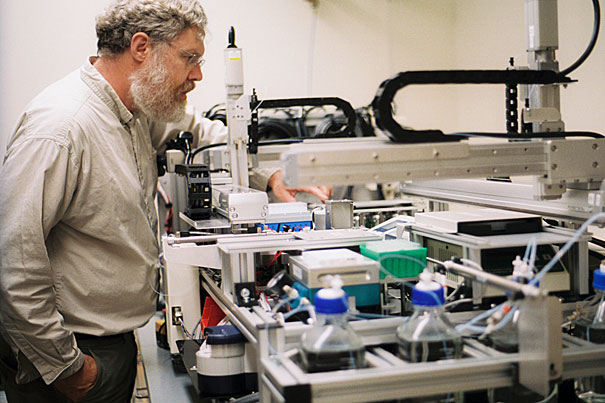
-
When to alter cancer screenings
Not only is it important for physicians to be fully informed about any cancer in their patients’ family histories, but a massive new study led by a Harvard researcher at Massachusetts General Hospital (MGH) and a University of California scientist indicates that it is important to update that history whenever there are contemporaneous changes in it.
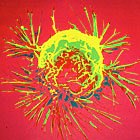
-
Finding ovarian cancer’s vulnerabilities
In their largest and most comprehensive effort to date, researchers from the Broad Institute of Harvard and MIT and Dana-Farber Cancer Institute, a Harvard affiliate, examined cells from more than 100 tumors, including 25 ovarian cancer tumors, to unearth the genes upon which cancers depend. They call it Project Achilles.
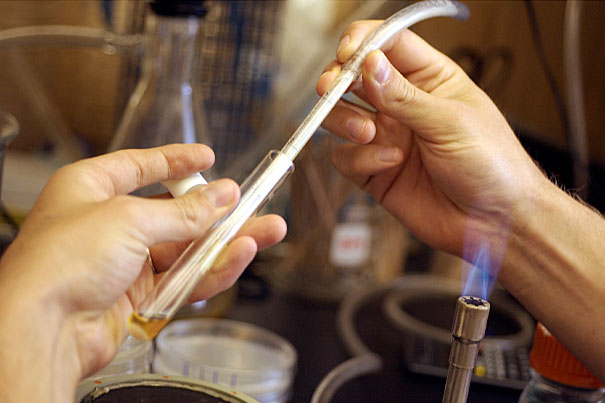
-
When estrogen isn’t the culprit
Although it sounds like a case of gender confusion on a molecular scale, the male hormone androgen spurs the growth of some breast tumors in women. In a new study, Harvard scientists at Dana-Farber Cancer Institute provide the first details of the cancer cell machinery that carries out the hormone’s relentless growth orders.

-
Cut calories, increase egg quality
A strategy that has been shown to reduce age-related health problems in several animal studies may also combat a major cause of age-associated infertility and birth defects.
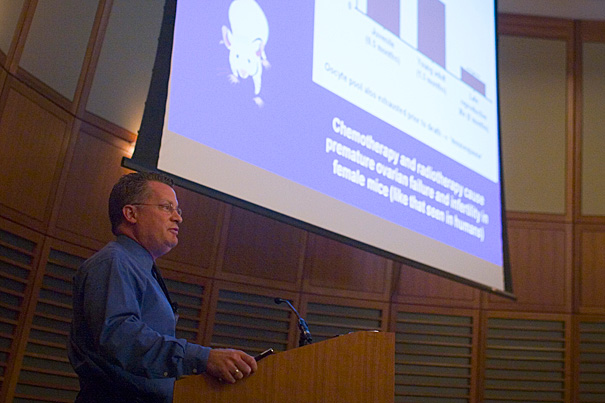
-
Bone loss study takes flight
When the final mission of NASA’s 30-year Space Shuttle program is launched on Friday (July 8), an animal experiment to test a novel therapy to increase bone mass will be on board. Harvard Medical School Asssistant Professor Mary Bouxsein is among the lead researchers.

-
Gray gets stamp of approval
The U.S. Postal Service unveiled a new postage stamp honoring Asa Gray, founder of Harvard’s Herbaria and the man considered the founder of American botany, in a ceremony at the Harvard Museum of Natural History.

-
New hope against diabetes
Results from a phase 1 drug trial by Harvard Medical School and Massachusetts General Hospital researchers showed that a decades-old tuberculosis drug knocked out the autoimmune cells that attack diabetic patients’ insulin-producing cells, followed by indications that pancreatic function was improving, albeit transiently.
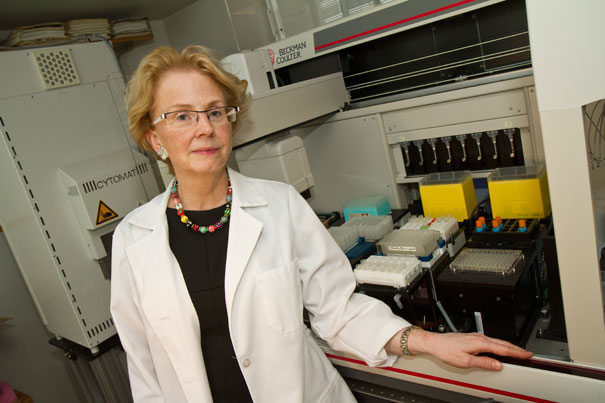
-
A focus on battling tuberculosis
Scientists from around New England gathered at the Broad Institute of MIT and Harvard to discuss the latest research and findings about tuberculosis at the Fifth Annual New England Tuberculosis Symposium.
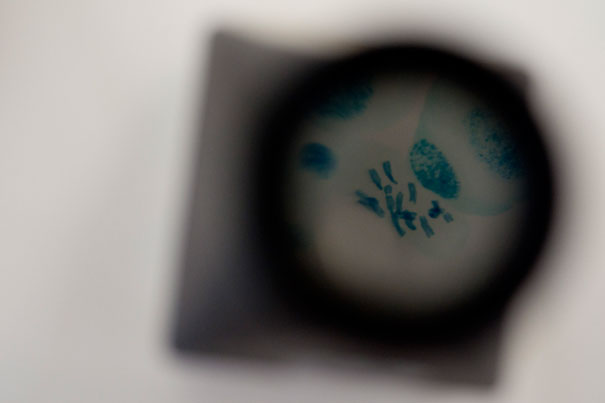
-
Where there’s smoke, there’s ire
Speakers at a Harvard School of Public Health conference on smoking hailed the late Sen. Edward M. Kennedy’s work to give the Food and Drug Administration new regulatory power over tobacco products and said, if wielded properly, it could prove a key weapon for better health.
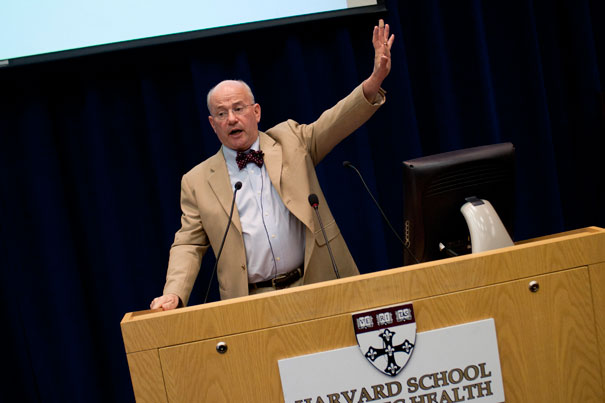
-
For love of the creepy, crawly
Biologists from around the world are on campus this week for an international conference on invertebrate morphology sponsored by the Museum of Comparative Zoology, the Harvard Museum of Natural History, and the Department of Organismic and Evolutionary Biology.
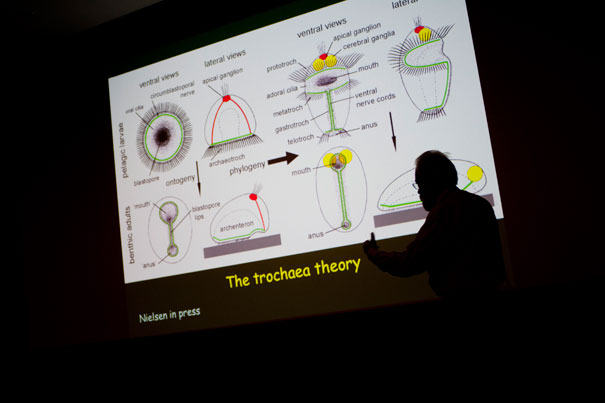
-
Clues on how flowering plants spread
Researchers at Harvard’s Arnold Arboretum have highlighted female competition among plants, saying it is a new factor that could have driven the mystifying diversity of flowering plants.

-
Cell’s linchpin protein found
After decades of failed efforts, researchers have discovered, through a combination of digital database mining and laboratory assays, the linchpin protein that drives mitochondria’s calcium machinery.

-
How ovarian cancer spreads
Harvard Medical School researchers find that ovarian cancer cells use mechanical force to move through tissue and colonize additional organs.
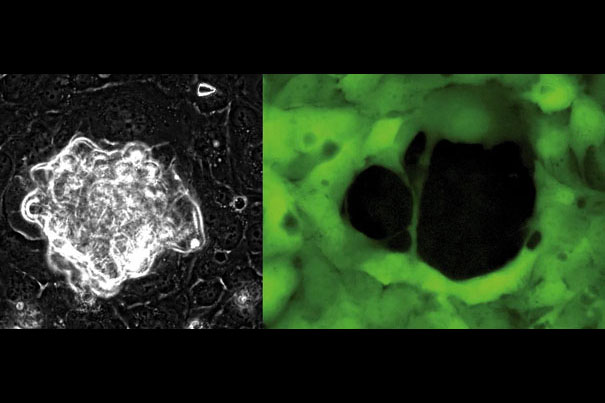
-
A living laser
In a new report, Harvard researchers Malte Gather and Seok-Hyun Yun describe how a single cell genetically engineered to express green fluorescent protein can be used to amplify the light particles called photons into nanosecond-long pulses of laser light.

-
New face for chimp-attack victim
A Connecticut woman who was badly disfigured when she was mauled by a pet chimpanzee in 2009 received a full face transplant during surgery at Harvard-affiliated Brigham and Women’s Hospital.
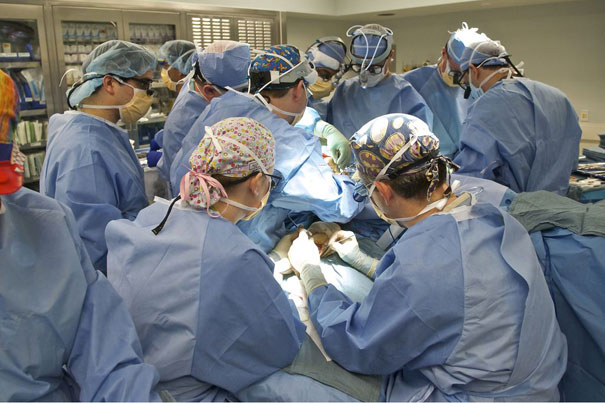
-
What makes them special
Researchers at Joslin Diabetes Center, a Harvard Medical School affiliate, examine why a select group of long-term type 1 diabetes survivors show so few complications.

-
No cheeks, no problem
Harvard biologist Alfred W. Crompton shows that dogs drink not with a messy scoop of the tongue, but in a way similar to that of cats — by using adhesion and inertia to pull water from the bowl into their mouths.
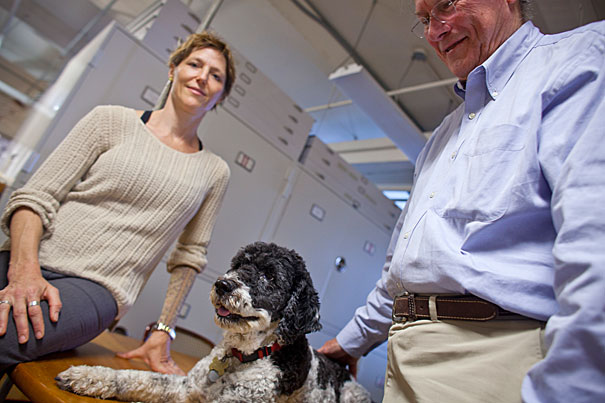
-
VHA vs. Medicare: And the winner is …
A Harvard Medical School-led study shows that cancer care provided by the Veterans Health Administration for men 65 years and older is at least as good as, and by some measures better than, Medicare-funded fee-for-service care obtained through the private sector.

-
Increasing odds for survival
A duo of drugs, each targeting a prime survival strategy of tumors, can be safely administered and is potentially more effective than either drug alone for advanced, inoperable melanomas, according to a phase 1 clinical trial led by Harvard investigators at the Dana-Farber Cancer Institute.

-
It doesn’t add up
An important new finding by Harvard researchers indicates that cellular mutations responsible for an organism’s successful adaptation do not, when combined over time, provide as much benefit as they would individually be expected to provide.
